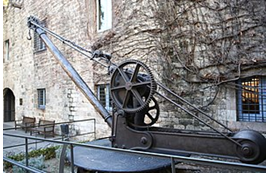Businessmen and farmers who use heave machines in doing their workprefer using cost-effective machines which are easy to acquire and servetheir purpose. When purchasing this equipment, certain factors that matter for the operation of the equipment must be considered. Some of the things to learn when purchasing this equipment are as follows:
Purpose of the equipment
The area where the equipment is to be used determines the type of machine to be used. Some areas need large heave machines while others need moderately smaller ones depending on the size and number of the loads. When buying this equipment, one should decide if it is to be used every day, once, weekly, etc. considering these factors will help determine which equipment is the best suited for the work.
The efficiency of the machine
The most critical factor to learn about heaves is efficiency. By assessing the work you need for the equipment, you will need to know which machine is capable. Some machines rotate at an angle of 360 and some do not, some can be re-adjusted to improve their workability while some are portable and can easily be moved from one point to another.
The working environment
The environment under which the cranes are to use should inform you of the equipment you should buy. The equipment suited for irrigation purposes is different from those for lifting loads during construction. The site where the heave is to be employes determines the durability and viability of the equipment. Use the machines only in the environment designated by the manufacturer.
Availability of repair
Since these machines used for lifting loads tend to wear and tear with time, they frequently need to be checked and repaired where necessary. It’s therefore important to choose equipment whose service is available when needed at regular intervals.
Familiarize with the record of performance of the equipment as dictated by the manufacturer so that you know the potential hitches as you use the tool.
Availability of customer support
Consider whether the technicians of the equipment are reliable in the case when the equipment develops a problem. Are there certified personnel to complete service repair? How prompt are the service providers? When the equipment is at the service center, are there costs for delivery? The technicians should inspect the equipment to ascertain the potential problems that may experience and help you to know what you need for your job.
Conclusion
Buy equipmentthat is in your price range, and suits your job. Some machines are expensive and of good quality, but they don’t have reliable personnel in the event it fails.
Researching on the machines before buying will save you from purchasing faulty equipment. Getting a better machine will enable you to maximize the use of the services of the equipment.





